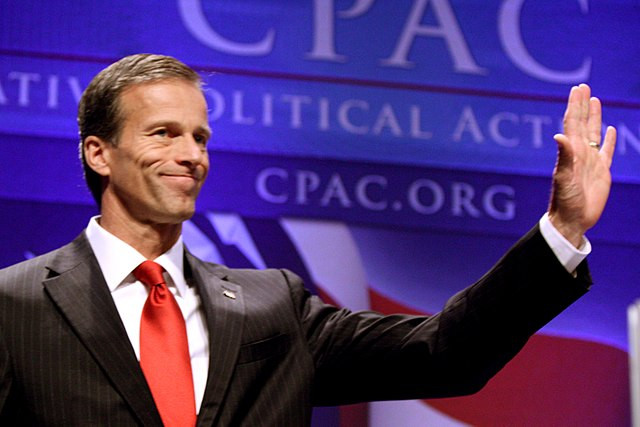Senate Republicans have chosen John Thune to lead their caucus, succeeding Mitch McConnell, who held the position for 17 years. Thune, currently the Senate Republican whip, defeated contenders including Texas Senator John Cornyn and Florida Senator Rick Scott in a secret ballot vote held Wednesday. The internal election marks a leadership transition for Republicans in the Senate as they seek to align their priorities with former President Donald Trump's agenda.
In a statement following his election, Thune expressed gratitude to his colleagues and emphasized the unity within the GOP under Trump's influence. "I am extremely honored to have earned the support of my colleagues to lead the Senate in the 119th Congress, and I am beyond proud of the work we have done to secure our majority and the White House," Thune said.
The leadership vote unfolded over multiple rounds of closed-door balloting. Scott, a prominent Trump ally who had recently secured reelection, was eliminated after the initial vote. The final showdown between Thune and Cornyn ended with Thune garnering 29 votes to Cornyn's 24. Despite Scott's attempts to position himself as the strongest Trump-aligned candidate, including endorsements from figures such as Elon Musk and Robert F. Kennedy Jr., his efforts fell short. Trump notably refrained from endorsing any candidate, instead emphasizing the importance of Senate support for his use of recess appointments, a mechanism to temporarily fill federal vacancies without Senate approval.
The internal race showcased the jockeying for influence within the GOP, reflecting both loyalty to Trump and broader policy concerns. Senators met late Tuesday for a forum hosted by Utah's Mike Lee, during which candidates pitched their visions for the party's direction. Thune, despite his historically cooler relationship with Trump compared to his rivals, stressed his communication with Trump's team and support for initiatives such as potential changes to Senate operating procedures. Cornyn, a former Senate Republican whip, leaned heavily on his record of confirming Trump's Cabinet and supporting his agenda.
Scott, on the other hand, tried to leverage his background as a businessman and endorsements from key Trump-aligned figures, including Senators Ted Cruz and Marco Rubio. However, some sources indicated that his pitch failed to resonate deeply with the majority of his colleagues. "Scott's remarks didn't do much to impress or sway members," said one insider familiar with the discussions. "He focused more on his time as a businessman instead of priorities for the Senate."
While Thune's election signals a continuity of experience and legislative know-how, it also underscores the ongoing influence Trump holds within the party. Thune's public endorsements from figures like Senators Markwayne Mullin, Mike Rounds, and Kevin Cramer, as well as private encouragement from National Republican Senatorial Committee Chairman Steve Daines, helped secure his victory.
Cornyn, a veteran legislator, maintained a reserved stance following his defeat, telling reporters, "I'll make my pitch to my colleagues, not to you." Thune, in contrast, was measured but hopeful about the future direction of the Senate GOP. "You never know until the voters vote," he said, reflecting on the uncertainty and intensity of the internal race.
The leadership transition occurs at a pivotal time for the GOP, with pressing issues such as legislative priorities, confirmations, and potential changes to Senate rules on the horizon. As Thune prepares to assume his new role in January, the party faces both opportunities and challenges in navigating internal divisions and advancing its agenda.






